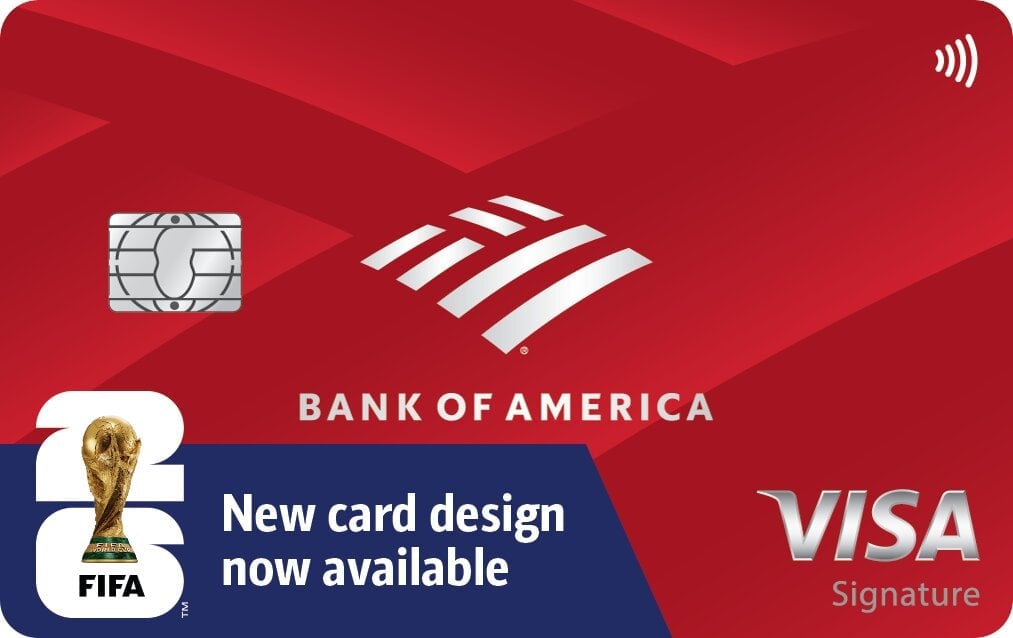What Is MRV Banks, and Are Its Credit Cards Right for You?
The bank partners with companies to issue a variety of credit cards. Here's how they stack up.

Many or all of the products on this page are from partners who compensate us when you click to or take an action on their website, but this does not influence our evaluations or ratings. Our opinions are our own.
Missouri-based MRV Banks is an independent bank that offers both its own financial products and partners with other brands to offer credit cards.
The lineup of MRV Banks-issued products mainly features cards that can help those with thin or no credit. For example, by and large they're usable anywhere and report your payment history to the credit bureaus. However, there are some downsides to some of the cards in MRV’s portfolio.
Here’s a closer look at some of the products the bank issues.
🤓 Nerdy Tip
MRV Banks also offers its own branded credit cards, like an Everyday Rewards+ card and a Travel Rewards+ Card, among others. But those cards are not issued by MRV Banks itself, but rather by Elan Financial Services. Revvi Card
Like other MRV Banks-issued cards, the Revvi Card aims to help consumers with limited credit histories. But it comes with pitfalls that can make it inaccessible and expensive for many. For one, the card charges a slew of fees. For example, if you’re assigned the minimum credit limit of $200, you’ll be charged a $50 annual fee for the first year (then $48 every year after), a $6.25 monthly service fee after your first year, and a one-time $95 program fee that’s required before holders can use their cards — and that's just a sampling of possible costs. Plus, these fees count against the card’s credit limit, which can result in high credit utilization before you’ve even used the card to make purchases.
Despite its limitations, the card offers one crucial credit-building tool — it reports to all three major credit bureaus. It also earns rewards, although they won’t get holders very far: When you make a card payment, you’ll earn 1% cash back (in the form of points that are worth a penny each). Points are redeemable in 500-point increments only, and you must be a Revvi cardholder for six months before you can start redeeming them.
Note that the Revvi Card requires a linked checking account to qualify.
Fisher-Price Card
The Fisher-Price College Savings Mastercard was discontinued in April 2024 and is no longer available for new applicants. All accounts are currently closed, but when open, the card was meant to help those who were interested in adding to their college savings. Holders could earn 2% back on all purchases if they deposited their rewards in an eligible 529 plan — and 1% back when rewards were not redeemed this way. Cardholders were also elgible for a small welcome bonus.
ALTERNATIVE PICK: As an alternative college savings option, consider a Bank of America®-issued consumer credit card that allows you to redeem rewards for credits to a qualifying 529 account with Merrill. One such qualifying card is the $0-annual-fee Bank of America® Customized Cash Rewards credit card.
It requires a bit more work than the Fisher-Price card, but earns higher possible rewards rates: 3% back on a category of your choice (from a list of six) and 2% back on grocery stores and wholesale clubs, for the first $2,500 of combined bonus category/grocery store/wholesale club spending per quarter; after hitting that threshold, you’ll earn 1% back on these purchases. (All other purchases earn 1% back.) Rewards can be redeemed for statement credit, a check, a direct deposit into a Bank of America® checking or savings account, an eligible 529 account or a contribution to an eligible Merrill account. Note that qualifying Bank of America® credit cards have a $25 minimum for one-time redemptions to a 529 account.
Groundwork Card
There are two versions of this card — a starter version called the Groundwork Visa Secured card and an unsecured version called the Groundwork card — neither of which are available to applicants yet. Like similar cards, the secured option requires a deposit, which also acts as the card’s credit limit. It also reports your payment history to all three major credit bureaus, which is crucial for credit-building. However, it comes with a $39 annual membership fee, which can be a barrier to some. The non-secured version, too, also may charge an annual fee — which is determined based on an applicant’s creditworthiness and other factors. Both Groundwork cards also come with travel accident insurance coverage up to $100,000, which is a nice perk on a non-travel card.
Article sources
NerdWallet writers are subject matter authorities who use primary,
trustworthy sources to inform their work, including peer-reviewed
studies, government websites, academic research and interviews with
industry experts. All content is fact-checked for accuracy, timeliness
and relevance. You can learn more about NerdWallet's high
standards for journalism by reading our
editorial guidelines.
Find the right credit card for you.
Whether you want to pay less interest or earn more rewards, the right card's out there. Just answer a few questions and we'll narrow the search for you.
Related articles








